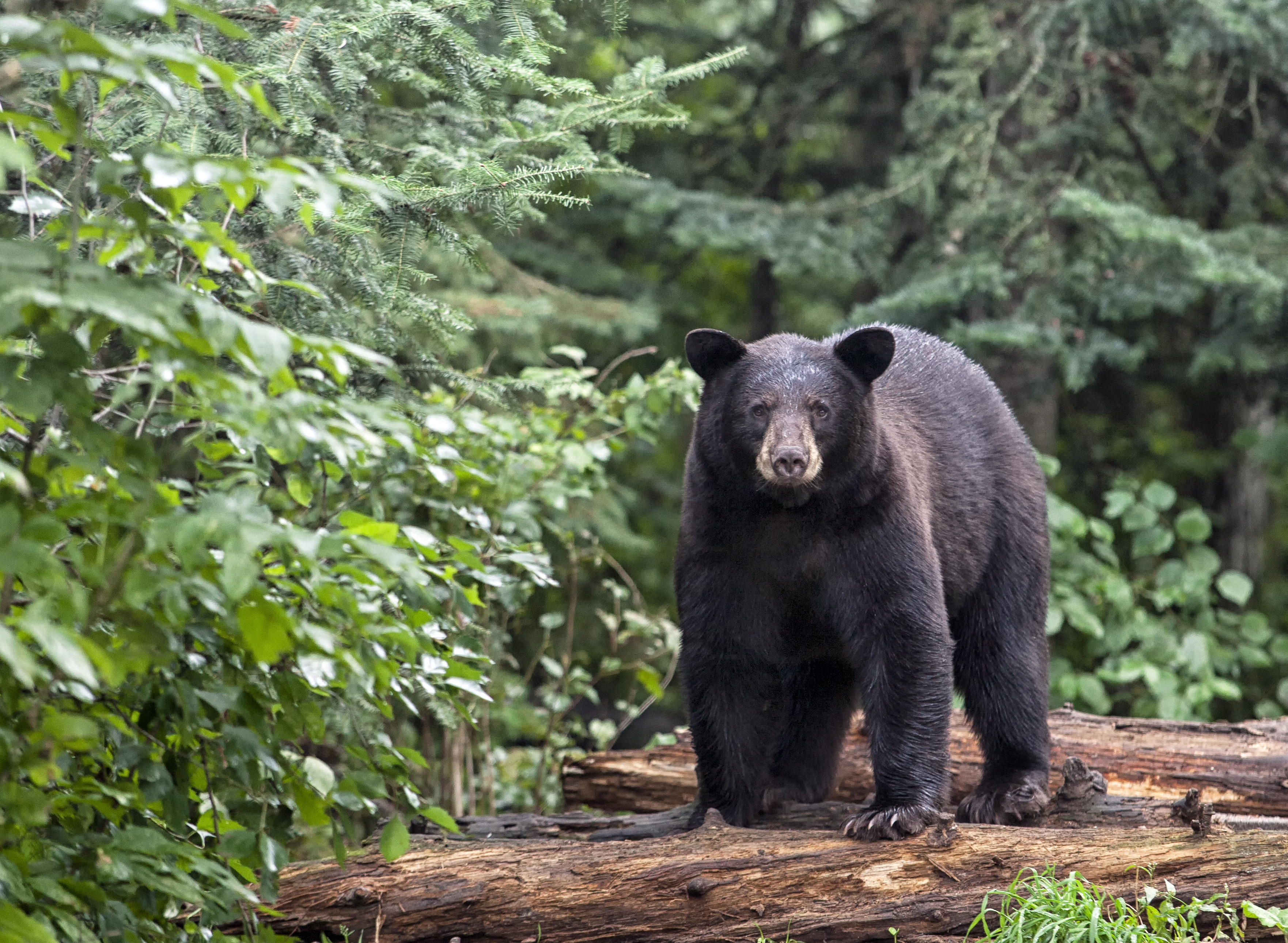Chances are, if you’ve camped in Michigan you’ve been warned about bears, especially in our Northern forested areas. Although bear sightings are rare and attacks are even rarer, you should still be prepared in case you happen upon one of these majestic animals.
Black bears are the only bears found in Michigan. While most of the state’s bears are truly black, their name can be misleading as they can come in a variety of colors: black, cinnamon, grey-blue, light and dark brown, and even blond. If you’re traveling outside of Michigan, you should take the time to familiarize yourself with their counterpart, the grizzly. These two are often mistaken for one another and should be treated much differently. Black bears are far more timid and unlikely to charge. You can scare a black bear off by looking it in the eye, making yourself big, and yelling for it to shoo. While with a grizzly bear, you want to avoid eye contact, speak in a calm tone, and drop to a ball if they charge. Carrying bear spray or pepper spray when in bear territory is always a safe practice.
They are omnivores and opportunistic eaters. Although they prefer berries, roots, and small mammals, black bears are known to venture near easily accessible meals, like bird feeders, garbage cans, and campsites. Bring your food in at the end of the night and take your garbage to the communal trash site rather than leaving it on your lot. Thoroughly clean your grill after each use, eliminating tantalizing food scraps while maintaining your grill’s longevity.
While walking in bear territory, walk in groups and make noise as you go. The bears will likely hear you or pick up your scent and flee. If you do encounter a black bear in the woods, it is best to try and avoid it. Make noise so it knows you are there, and while keeping an eye on the bear, back away slowly.
If a bear is on your site, try to shoo it off toward the woods. Maintain a calm demeanor, and provide a clear path to retreat.
If you have questions or need assistance with a reoccurring bear nuisance, contact your local DNR Customer Service Center, or animal control center.


